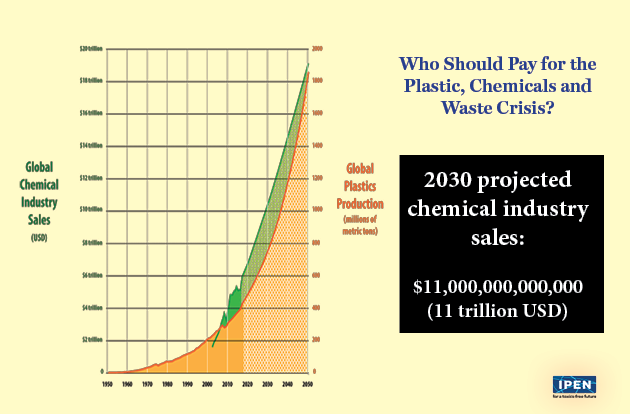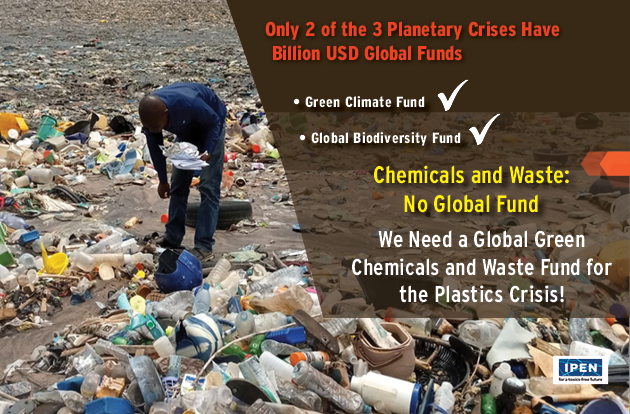The second meeting of the Intergovernmental Negotiating Committee (INC1) of the Plastics Treaty will take place from 29 May – 2 June 2023 in Paris, France.
See all of our work on toxic plastics at StopPoisonPlastic.org
New Report Outlines Science on Health Threats from Plastic Recycling
A new report from Greenpeace USA, in collaboration with IPEN and The Last Beach Cleanup, shows that recycling actually increases the toxicity of plastics and highlights the threats that recycled plastics pose to the health of consumers, frontline communities, and workers in the recycling sector. Along with previous research showing that very little plastic reaches recycling facilities, the report concludes that the upcoming global Plastics Treaty negotiations in Paris must focus on capping and then phasing down plastic production. Read the press release here.
Troubling Toxics: Eliminating Harmful Plastic Chemicals Through the Plastics Treaty
The IPEN briefing Troubling Toxics discusses approaches in the Plastics Treaty to establish criteria for a negative list of toxic chemicals associated with the production, use, and disposal of plastics. IPEN calls for a strategy that combines a negative list of toxic chemicals to eliminate from plastics with an approach that prohibits marketing chemicals when there is no available toxicity data.
Plastic Recycling is Recyling Toxic Chemicals
IPEN is concerned about the health and environmental threats throughout the plastic recycling stream. Studies from IPEN and others have shown that plastic recycling poses health threats to consumers, waste and recycling workers, and communities.
See reports exposing health threats from plastic recycling from IPEN and others here, and check all of our resources on plastics and chemicals.
No Funds for the Plastics Crisis
Three planetary crises have been identified, but global funds have been established for only two. IPEN is calling for a Global Green Chemicals and Waste Fund to address the toxic impacts from chemicals in plastics and plastic waste.

IPEN Webinar: Chemicals and Plastics: Governance Under the Plastics Treaty and Beyond
In April, IPEN hosted a webinar with Dr. Karen Raubenheimer and Niko Urho, authors of the new UNEP/FAO,"Report on global governance of plastics and associated chemicals."
Dr. Raubenheimer is a Senior Lecturer at the University of Wollongong, Australia, and Niko Urho is Senior Research Fellow in the Center for Governance and Sustainability at the University of Massachusetts in Boston.
The webinar also features a panel Q&A with the authors, Kei Ohno Woodall of the BRS Secretariat, IPEN Policy and Technical Advisor Vito Buonsante, and Giulia Carlini, a Senior Attorney at the Center for International Environmental Law and co-chair of IPEN's PLastics Working Group. The webinar is introduced by IPEN Programs and Policy Coordinator Lia Esquillo, with opening remarks by Griffins Ochieng, Executive Director of the Centre for Environment Justice and Development (CEJAD) in Kenya and co-chair of IPEN's Plastics Working Group.





